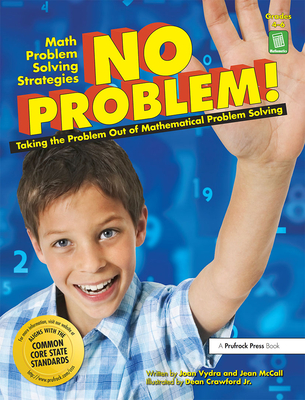
description
6The role of a mathematician does not involve adding columns of numbers. It is about using logic, looking for patterns, discovering rules, and organizing data. It does involve the use of computational skills, but more importantly, it calls for the use of imagination. Young math students will become expert problem solvers with this program of eight problem-solving techniques that include: guess and check, use or make a table, make an organized list, look for a pattern, act out or use manipulatives, use logic, simplify or work backwards, and make a diagram or drawing. While there are other problem-solving strategies that mathematicians use, these are the strategies that will allow elementary-age students to solve mathematical problems most consistently. Each technique is introduced with a week of problems. The second half of the book presents problems arranged randomly, so students have to determine on their own which problem-solving technique they will use. Attractively illustrated and sprinkled with humor, these problems will keep students entertained throughout the entire year while they develop skills for solving math problems.
member goods
No member items were found under this heading.
listens & views

TRIBUTE TO GREEN,GRANT / VARIOUS
by TRIBUTE TO GREEN,GRANT / VARIOUS
COMPACT DISCout of stock
$15.49
Return Policy
All sales are final
Shipping
No special shipping considerations available.
Shipping fees determined at checkout.






